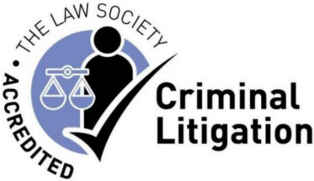Specialist Business Tenancy Lawyers
 Commercial leases are complex and onerous. And they are very different from the Assured Shorthold Tenancy (AST) – the fairly standard leases used for most residential tenancies. For many businesses, renting premises is their biggest undertaking, and the obligations and liabilities are far-reaching. It is not possible to simply walk away from an agreement if the situation does not work out. We answer the question, “Do I need a solicitor to rent commercial property?” and explore some of the pitfalls you need to avoid.
Commercial leases are complex and onerous. And they are very different from the Assured Shorthold Tenancy (AST) – the fairly standard leases used for most residential tenancies. For many businesses, renting premises is their biggest undertaking, and the obligations and liabilities are far-reaching. It is not possible to simply walk away from an agreement if the situation does not work out. We answer the question, “Do I need a solicitor to rent commercial property?” and explore some of the pitfalls you need to avoid.
Need Specialist Commercial Property Solicitors? Call us on FREEPHONE 0800 1404544. Initial legal advice on the phone for business tenancies is always FREE.
Should I sign a commercial lease?
We strongly advise that you speak to a specialist, experienced commercial property solicitor before signing a commercial lease.
The first step your solicitor will take when dealing with a commercial lease is usually agreeing on heads of terms with the other party. This document sets out the key terms you will include in the lease.
The landlord’s lawyers will generally draft the heads of terms, and the tenant’s solicitor will check the document and negotiate as necessary. Details contained in most heads of terms include:
· The names of the parties, including the guarantor, if there is one
· Details of the property
· How much deposit the tenant will pay
· How much rent the tenant will pay, and when it is due
· How and when the landlord will review the rent
· How much service charge the landlord requires
· The date the tenancy will start
· Whether the tenant has security of tenure
· Details of the break clause if you agree on a break clause
· The length of the lease
· Any rights or restrictions
· Who will insure the property
· Who will deal with repairs and maintenance
· Whether the landlord permits subletting
Negotiating a commercial lease
Solicitors for the landlord and tenant will usually negotiate the lease terms. As a tenant, ensuring you understand what you are agreeing to is crucial. Particular issues that your solicitor will advise on include:
· The length of the lease
· Responsibility for repairs and maintenance
· Rent review
· Service charges
· Energy efficiency improvements
· Security of tenure
· Subletting and assigning
· Permitted use
The length of the lease
Early commercial lease termination can prove expensive if you get it wrong – Having the correct lease term is essential. You may be happy to take on a long lease initially, but if you want to move to new premises or shut down your business, you may find yourself stuck with a lengthy lease term and expensive commitments for rent if the landlord will not release you from the agreement. You would be liable for rent payments until the end of the agreed term.
A solicitor can advise you on the best approach for your circumstances. This could be agreeing on break clauses allowing you to end the lease earlier if necessary, taking on the property for a shorter term or ensuring that subletting or assigning the lease to a new tenant is permitted.
Responsibility for repairs and maintenance of the building
Repairing clauses in commercial leases can be exceptionally onerous. A lease will require the tenant to return the property in good repair and condition, but it’s very important to get the wording right. If you’re not careful, you may end up with what’s referred to as a fully repairing lease even if the property was in poor condition when you took it on. The landlord then has the right to make the tenant pay for major repairs and redecoration etc. These sums are referred to as “dilapidations”.
It’s worth trying to ensure that your to putting the property into the same condition it was when it was leased. A schedule of condition can be prepared by an expert commercial property surveyor and attached to the lease. The tenant’s solicitor can request clauses ensuring that the landlord cannot request repairs that would put the property in a better condition than when the tenant took it on.
Rent review
The lease will specify how the landlord can review and increase the rent. This will usually be an increase at regular intervals based on a benchmark such as the retail price index or by a fixed percentage. Negotiations will ensure that you secure reasonable terms and that the landlord cannot increase the rent as and when they wish.
Service charges
It is ideal for a tenant to have service charge increases capped, though most landlords will try to refuse this limit.. Without a cap, there is a risk that the landlord can levy excessive charges if they want to have work done to the property.
Energy efficiency improvements for commercial leases
As of 2030, the Minimum Energy Efficiency Standards (MEES) require that commercial premises have a minimum Energy Performance Certificate (EPC) rating of B.
Landlords might expect to pass on the costs of energy efficiency improvements to tenants. However, costs are likely to be substantial with many properties requiring a complete overhaul of their energy systems and the addition of extensive insulation.
An experienced commercial lease solicitor can try to negotiate that, as a tenant, the landlord cannot force you to cover the entire bill to improve their property.
Security of tenure
This is a particularly important issue and one that is often not fully appreciated by business tenants.
The Landlord and Tenant Act 1954 gives commercial tenants security of tenure, meaning they have the right to renew their lease when it expires. However, the landlord can include a clause in the lease excluding this right so that a tenant will not be able to renew the lease automatically.
Your solicitor will be able to discuss the implications of this with you and negotiate to try to obtain security of tenure where necessary. This can give a business more stability and may increase its value if the location is key.
Subletting and assigning
If the time comes when you no longer want the property, it is useful to be able to assign the lease or sublet the property to a new tenant. The lease can grant permission for this and set out the process the tenant will need to follow. Again, this is the kind of issue subject to negotiation.
You may find limitations on your ability to sublet or assign. Example, your landlord may want to approve the new tenant – though with so, it’s important that you get the appropriate clause correct (perhaps to the effect that your landlord cannot unreasonably refuse such consent). But depending on the terms of the lease, you may find that as the existing tenant, you remain liable for the rent and compliance with the terms of the lease.
Permitted use
The lease will stipulate how you can use the property. Your solicitor will also check that the use class imposed by the local authority allows you to carry out your planned business.
Your solicitor may need to negotiate to ensure that there is scope for changes, for example, if your business diversifies or you need to make alterations to how you operate.
Do I need a solicitor to rent commercial property?
Both landlords and tenants should always use an experienced commercial property solicitor when entering into a lease. For tenants in particular, there are many traps for the unwary.
If the lease does not cap service charges, you could face a potentially unlimited bill. If you do not have robust clauses relating to maintenance, you might to have to pay for a new roof. Without break clauses or the right to sublet, you will have to keep paying rent until the end of the lease, whether or not your business continues to occupy the premises.
With new, more stringent energy efficiency requirements, many landlords will look to pass on the costs of improvements wherever possible. Uninformed tenants risk walking into a financial disaster if they do not limit their liability at the outset.
Entering into a lease without the right legal advice and without fully understanding your responsibilities can be catastrophic for a business. Using a solicitor with plenty of commercial lease expertise will safeguard your position.
If you are looking to rent commercial property, and have instructed one of our solicitors to review your business lease, we will work with you to establish your needs and how you see your business developing. This that will allow us to understand what clauses to push for when negotiating a commercial lease on your behalf.
Having the right lease in place can be critical – it will give your operation the security and flexibility it needs for success. And it will provide you with the best chance of avoiding an unnecessary and potentially very expensive commercial property dispute.
Specialist legal advice for commercial landlords
Landlords also need representation when entering into a commercial lease. From drafting and negotiating heads of terms to drawing up and agreeing on a watertight lease, a commercial property expert will ensure that a landlord’s investment is protected.
Having a strong lease in place reduces the risk of misunderstandings and disputes. When a lease is fair and well-drafted, a tenant is more likely to be satisfied with the arrangements and stay for longer. This means your property will spend less time empty and you will not need to keep finding new tenants.













